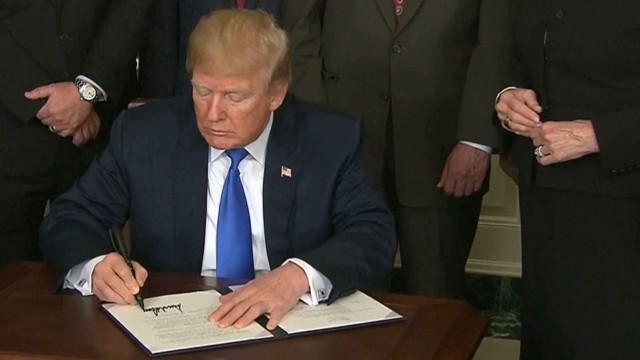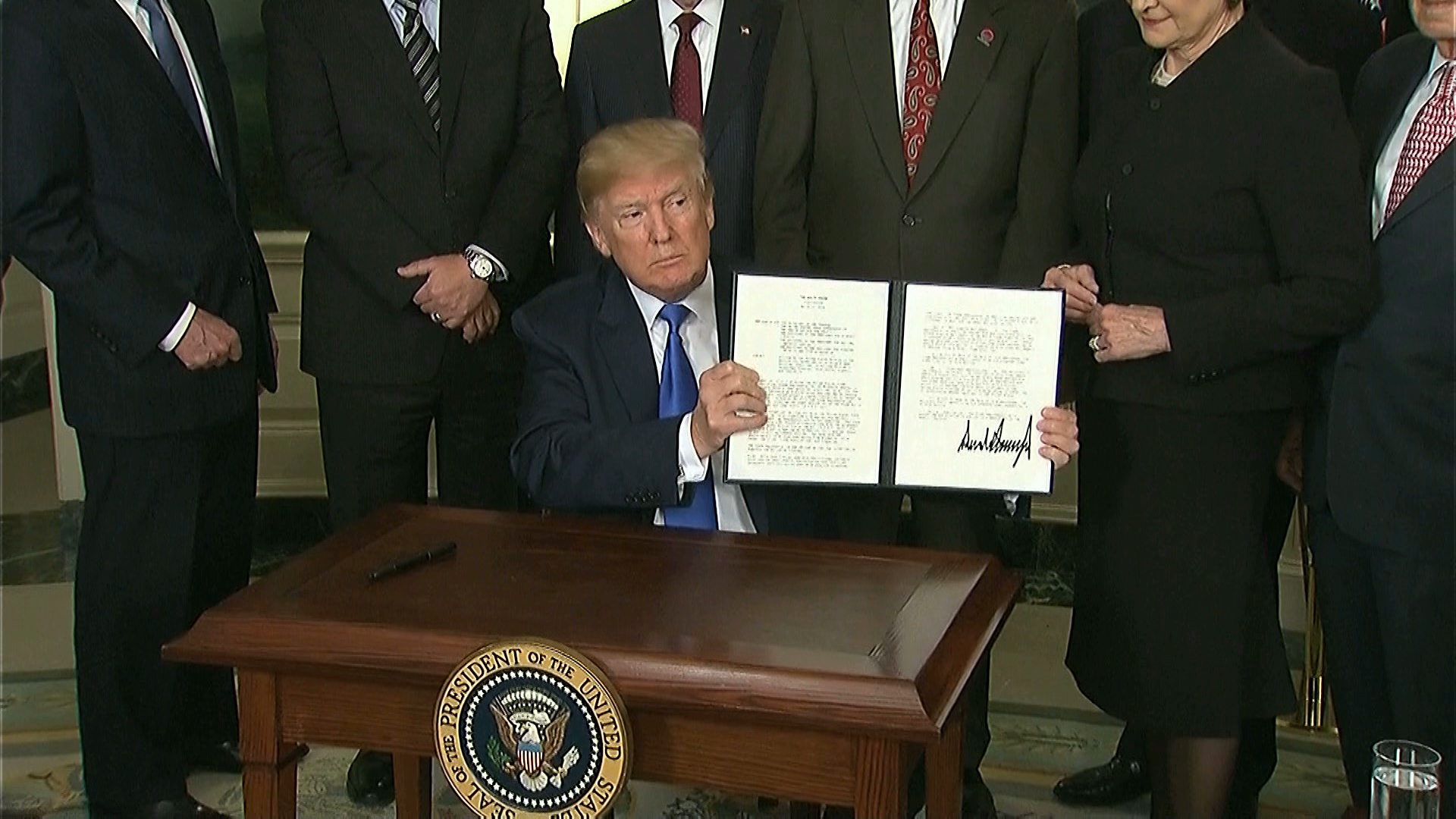The Trump administration has announced what could over $50 billion worth of tariffs on China while also preparing to file new complaints against China at the World Trade Organization, raising concerns of a possible trade war. CGTN’s Nathan King reports.
After a months-long investigation, the U.S. President said China is guilty as charged.
“We have one particular problem,” President Trump said, “and I view them as a friend, I have tremendous respect for President Xi – and that’s China.”
The Trump administration says China is conducting a state-run scheme to steal intellectual property, forcing technology transfers. He said that, as a result, the U.S. needs to implement tariffs on Chinese imports, amounting to around $60 billion.
Trump also wants to impose more curbs on Chinese investment in the United States, and he plans to file a complaint with the World Trade Organization.
Chinese officials are already pushing back; they’re calling for talks, but also saying they’re ready to retaliate with tariffs on U.S. agricultural and aerospace products.
“We hope both sides can achieve a win-win solution on trade issues through constructive dialogue and negotiation, in the spirit of equality and mutual respect,” said Chinese Foreign Ministry spokeswoman Hua Chunying.
“China completely disagrees with, and also can’t accept this so-called ‘economic invasion’. The word ‘invasion’ can’t be used to label China in any way,” she added.
Before implementing the tariffs, the White House will hear from U.S. businesses who are going to be hit by them as soon as 15 days from now.
Separately, the U.S. Treasury has up to 60 days to come up with new curbs on Chinese investment in the U.S.
The U.S. says it will protect industries targeted in China’s 2025 plan that seeks to be global competitors in the industries of tomorrow – industries like aerospace engineering, medicine, and robotics.
According to U.S. Trade Representative Robert Lighthizer, “There are some areas that you just have to protect yourself from. They’re not going to change their attitude on these things. But we need to be in a position where U.S. industry is not wiped out because of it. And if we don’t do that, shame on us.”
Many U.S. businesses – from retailers to car giants to farmers – disagree. They know that if China retaliates they will be hit hard, and say that in a globalized economy, ‘Making America Great Again’ doesn’t mean other countries have to lose.
Wallace Cheng discusses U.S. tariffs on China and Beijing’s response
Beijing responded to new U.S. tariffs with the imposition of tariffs of its own, targeting fruit, nuts, wine, pork products, steel and aluminum. Wallace Cheng, managing director for China at the International Centre for Trade and Sustainable Development, discusses both the U.S. and Chinese tariffs.
 CGTN America
CGTN America


